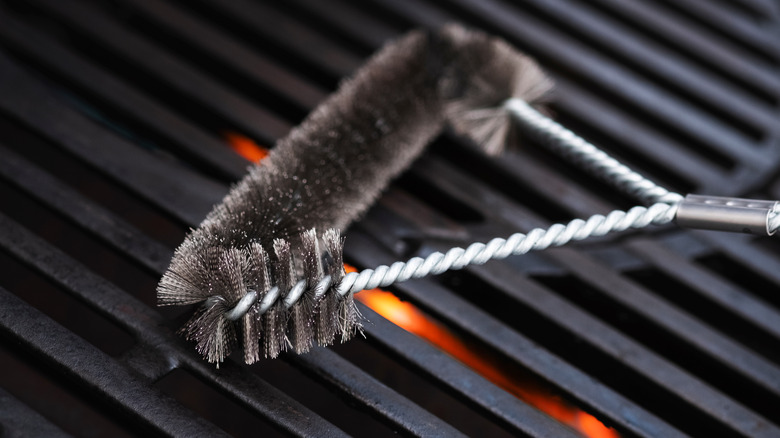Are My Grill Grates Too Close to Flame? Improve Grilling Safety!
Written By James Morgan
As a barbecue enthusiast, ensuring your **grill grates** are at the optimal distance from the flame is crucial for both safety and cooking efficiency. Many grillers often wonder, 'are my grill grates too close to the flame?' This question doesn't just affect the quality of your food but also impacts the lifespan of your grill and the safety of your grilling environment.
When the **grill grates** are too close to the flame, it can lead to uneven cooking, increased flare-ups, and a higher risk of burning your food. Moreover, excess heat can deteriorate the grates over time, making them less effective and more prone to damage.

Understanding the Ideal Distance for Grill Grates
The ideal distance between the **grill grates** and the flame can vary depending on the type of grill and the food being cooked. However, a general rule of thumb is to maintain a distance of about 3 to 5 inches. This allows for efficient heat distribution and minimizes the risk of charring or burning your food.
It's important to regularly check the condition of your **grill grates** and adjust their height if necessary. This not only improves the quality of your cooking but also extends the life of your grill. For more insights on keeping your grill grates in top condition, you can read about seasoning grill grates.
Signs Your Grill Grates Might Be Too Close
Recognizing the signs that your **grill grates** are too close to the flame can save you from potential grilling disasters. Here are some indicators:
- Frequent Flare-Ups: If you notice frequent flare-ups, it might be due to the grates being too close, causing fat drippings to ignite quickly.
- Uneven Cooking: If some parts of your food are overcooked while others are undercooked, it could be a sign that the heat is not being distributed evenly.
- Excessive Smoke: While some smoke is normal, excessive smoke can indicate that the juices are burning too quickly due to close proximity to the flame.
- Charred Food: Consistently charred or burnt food is a clear sign that the **grill grates** are too close to the flame.
Adjusting Grill Grate Height for Perfect Grilling
Adjusting the height of your **grill grates** is a straightforward process but requires some attention to detail. Begin by examining your grill's design. Many grills come with adjustable grates, allowing you to raise or lower them according to your cooking needs. If your grill doesn't have this feature, consider using a grate lifter or adjusting the charcoal bed (for charcoal grills) to control the distance between the flame and the grates.
For further tips on ensuring even heat distribution, check out this guide on grill grates heating.
Additional Tips for Safe Grilling
Maintaining the right distance between the **grill grates** and the flame is just one aspect of safe and effective grilling. Here are some additional tips:
- Preheat Your Grill: Always preheat your grill for at least 15 minutes before cooking to ensure even heat distribution.
- Keep the Grill Clean: Regular cleaning helps prevent flare-ups and extends the life of the grill.
- Use a Grill Thermometer: A grill thermometer can help monitor the temperature and prevent overheating.
- Inspect for Damage: Regularly inspect your grill and grates for signs of damage or wear.
For more information on maintaining your grill, this seasoning guide is a great resource.
FAQs
How can I tell if my grill grates are too close to the flame?
Look for signs like frequent flare-ups, uneven cooking, and excessive smoke. Adjust the height if necessary.
What is the ideal distance between grill grates and the flame?
The ideal distance is generally between 3 to 5 inches, depending on your grill type and the food being cooked.
Why is it important to maintain the right distance?
Maintaining the right distance ensures even cooking, reduces the risk of flare-ups, and prolongs the life of your grill.
For more detailed guidance on handling grill grates, you might find this expert review helpful in understanding the nuances of grill maintenance.



